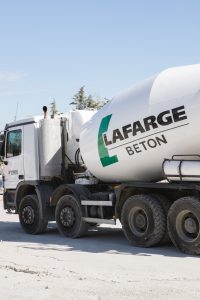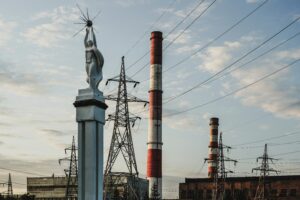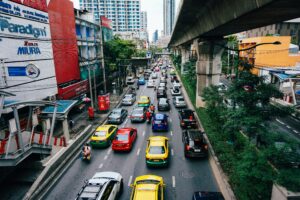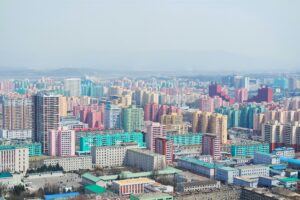In an almost historic case, the dismissal of accusations brought against the French cement giant Lafarge by anti-corruption groups in Paris, has been overturned by the highest court (Court of Cassation) in France. The former CEO of Lafarge, Bruno Laffont as well as eight more executives were charged with TF.
The multinational cement company is found guilty of funding terror groups that include ISIS (Daesh) through its Syria subsidiary Lafarge Cement Syria (LCS). The company’s agents have transferred amounts estimated to be around $15M to secure its interests around the cement plant it operated.
From rapprochement investment to intel outpost
Lafarge’s Syria adventure started before the civil war that laid ruin to the Middle Eastern country and made news for more than a decade. The company had purchased, in 2007, a cement plant and spent over a billion dollars for its renovation. The investment signified a strategic move to position the company in the Middle Eastern market, but also a rapprochement between France and Syria.
A year after the plant turned operational, civil war broke out in Syria. During the most heated moments of the conflict, the plant in Jarabiya region was surrounded by warring parties the most notorious of which was the terror group ISIS.

In 2016, an investigation by Le Monde found out that the multinational had paid several armed groups to keep the plant running. An internal inquiry launched by Lafarge verified details. Bribes were paid to guarantee ‘the safe passage of employees and supplies to and from the plant” and they also included a ransom, transferred to free an employee taken hostage.
Such a prolonged calendar of ‘tax’ payments made to the terror group would easily be funnelled to terrorist acts abroad, including the 2015 Bataclan massacre in Paris.
The complaint filed against the company by anti-corruption group Sherpa, the European Center for Constitutional and Human Rights (ECCHR) as well as eleven former employees sought to hold Lafarge accountable for complicity in crimes against humanity. The indictment was logical, as such a prolonged calendar of ‘tax’ payments made to the ‘caliphate state’ of the terror group would not only secure ISIS’ strength on the ground in Northern Syria, but would easily be funnelled to terrorist acts abroad, including the 2015 Bataclan massacre in Paris.

Compliance, violations, complications
Lafarge case does not constitute a first where multinational firms made payments to non-state actors – armed groups, militia, terrorist organisations – to secure operations in a conflict zone. The chaos in Northern Syria was not starkly different than, let’s say the political situation in certain parts of the Democratic Republic of the Congo, and one could say Lafarge was victimised by a shift in circumstances, rather than exploiting it for ill gains.
Later, Lafarge’s defence utilised the narrative of the company’s inability to control the subsidiary, blaming the transgressions on the actions of “a small group of individuals”.
Lafarge case underlines the importance of robust supply chain due diligence. It is full of lessons for companies who are keen to expand into uncharted territories. In 2017, France had adopted the ‘Loi de Vigilance’ that obliges corporations to meticulously monitor their supply chains in order to prevent any human rights abuses and map out and analyze risks accordingly. Could an earlier adoption of the ‘vigilance’ prescribed by the law, have prevented Lafarge’s transgressions?
Game changer: The Question of State Involvement
Nevertheless, Lafarge’s insistence to keep its presence in war torn country, despite the warnings that might have come from its own compliance department, and in view of other French multinationals promptly packing to leave, did not source of a commitment – to its shareholders, employees or the people of the country. Investigations unearthed communication between Lafarge and agencies of the French government.
The communication between intelligence officers and Lafarge directors, indicate Lafarge’s case being more than an act of wilful blindness in pursuit of profit. The French state apparatus instrumentalised the plant and Lafarge presence in Syria as a field outpost that signals back intelligence.
The case sets a precedent where complicity on the part of the state apparatus can be countered by the vigilance of watchdog groups and democratic institutions.
Lafarge case establishes two precedents, one that will remind multinationals that jurisprudence has teeth to prosecute higher-ups and no quarters will be given. And another, where complicity on the part of the state apparatus can be countered by the vigilance of watchdog groups, the civil society and the workings of the democratic institutions.
Considering the upcoming legislative changes in EU countries, drafted to prevent adverse human rights impacts of corporate operations, it would be an interesting exercise to recalculate the consequences, or the pace of punitive actions, if Lafarge were an American enterprise.







